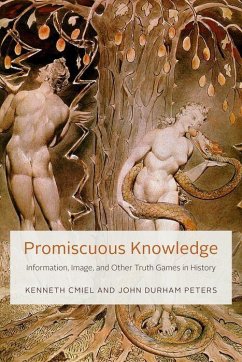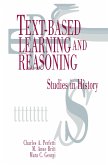"Histories of communication are still relatively rare birds, but this one is distinctive on several grounds. The two authors are/were undisputed giants in the field. Ken Cmiel, the originator of the book, still unfinished when he suddenly died in 2006, was a cultural historian of communication; his best friend, John Peters, is one of the world leaders in the intellectual history of communication. In completing that unfinished manuscript, Peters has performed astonishing prestidigitation here in creating an effective hybrid: he retains the core of Cmiel's account, while creating a unique book that, courtesy of Peters, brilliantly spins out the solid Cmielian core and its material traces into gorgeous reflections on aspects of how we make our way through a world of images and information. Promiscuous Knowledge constructs a cultural and intellectual history of information, images, and conceptions of knowledge since the 17th century, with an emphasis on the American context since the 19th century. Cmiel/Peters sketch the way in which various containers for information-knowledge, expertise, abridgment, books, digests, encyclopedias, museums, etc.-have variably organized gluts of information, and how these containers have eroded since the 1970s. A parallel throughline traces social attitudes and practices around images and key media for circulating and experiencing them. Cmiel envisioned the largest contour of the book as a contribution to the history of truth and truth-making. His protagonists are pictures and facts, images and information. They enact a process of gradual dismantling, erosion, or collapse of the mass culture system from last century into the present. Promiscuous knowledge has a new face, courtesy of the online universe full of filter bubbles, echo chambers, and fake news. Google offers a single portal to a churning mass of confusion; it lacks a principle of inclusion/inclusivity, it has no way of framing the whole. Peters has shaped what Cmiel started out with into a better Trump-era book than an Obama-era book. And he has retained its core: a brief history of how we left the world of fact for the world of information"--








